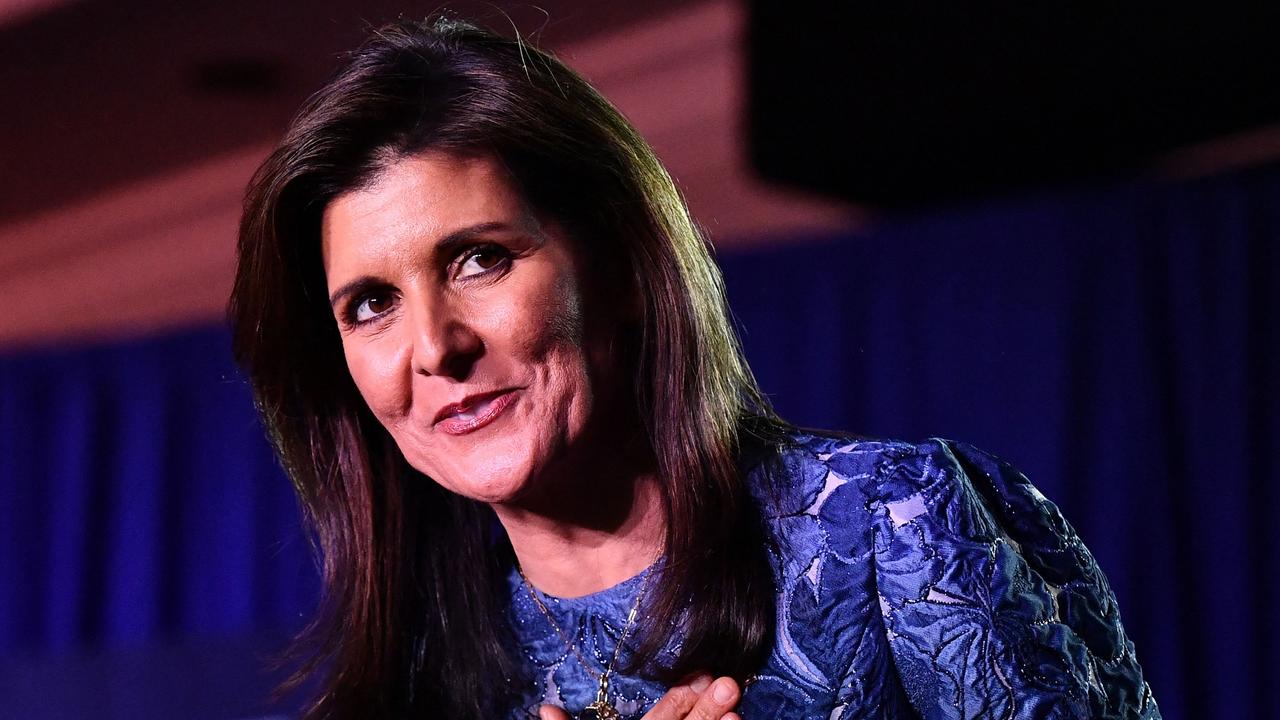Donald Trump has practically won the GOP nomination for president after only two contests


A few days later he was out of the race, ensconced back in sunny Florida after months of frenetic campaigning throughout the two ‘first in nation’ Republican contests to determine the party’s candidate for president.
A beaming Nikki Haley gave her best attempt to cast her clear loss to Donald Trump as a triumph in Concord, New Hampshire on Tuesday night (Wednesday AEDT). “I’m not going anywhere…except to my sweet South Carolina,” she told cheering supporters.

Yet she too, will likely drop out soon, or face a massive humiliation in her home state, where she was governor from 2011 to 2017, not to mention the wrath of Donald Trump, whose practically unstoppable candidacy for the GOP nomination and perhaps the White House presents a significant threat to any Republican who dares cross him.
The campaign for Republican nominee for president is now over, barring a conviction that puts the former president in jail before the Republican National Convention set for Milwaukee in July, which might compel the party to consider emergency measures.
However unfairly or not, Trump successfully branded Haley as the servant of big corporate interests, and likely to lead the US into further foreign entanglements, something Trump’s Republican base has become decidedly allergic to.
She appeared to do well in New Hampshire, scoring around 45 per cent of the vote in a two-horse race the former president, but her donors, including hedge fund billionaire Stanley Druckenmiller and LinkedIn founder Reid Hoffman, would be far less thrilled.

Her campaign and allied groups spent more than US$31 million in New Hampshire since the start of the year, around double what Trump’s campaign spent, and that follows a US$37m splurge in Iowa (again, double Trump’s outlay).
Winning a major party’s presidential nomination is very expensive business in the US. And these were two small states with a combined population of less than five million. For contrast, the Coalition and Labor each spent around $120 million in the entire year leading up to the 2022 federal election on campaign advertising.
Numerous Republican voters told me on the campaign trail they were suspicious of Haley’s reliance on shadowy rich donors. Trump wasn’t bought off my special interests, they said.
Moreover, Haley held 77 campaign rallies throughout New Hampshire since she announced her bid for the White House last year, Trump only 17. He’s barely started campaigning.

The former president is also hugely popular in her home state of South Carolina, which will hold the next big Republican primary on 24th February. There, 62 per cent of voters say they will vote for Trump, compared to 25 per cent for Haley, setting her up for a potentially huge humiliation on her doorstep.
In the last few days of the campaign Haley, and her number one backer New Hampshire governor Chris Sununu, tried to cast Haley as the political outsider.
Anyone paying attention wouldn’t have bought that. Her campaign enjoyed significant support from much of the US media, which for months talked up her supposed ‘surge’. That narrative has imploded, which should see a greater share of conservative news outlets at least, coalesce around Mr Trump in coming weeks as the inevitability of a Trump-Biden rematches becomes clearer.







When Ron DeSantis finished a distant second to Donald Trump, and ahead of Nikki Haley, in last week’s Iowa caucuses he told cheering supporter he’d “punched his ticket”, earned his right to stay in the race for New Hampshire.